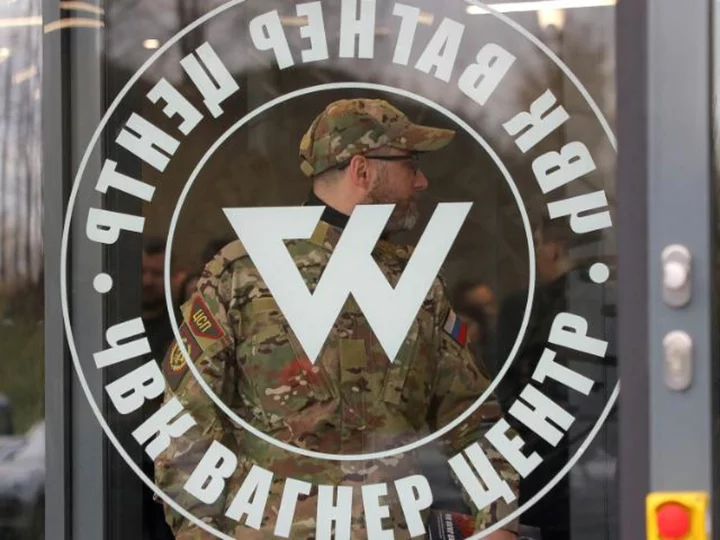
US imposes new sanctions related to gold dealing to fund Wagner Group
The US Treasury Department on Tuesday imposed sanctions on four companies involved in "gold dealing" and one person they say made "weapons deals" tied to the Wagner Group.
1970-01-01 08:00
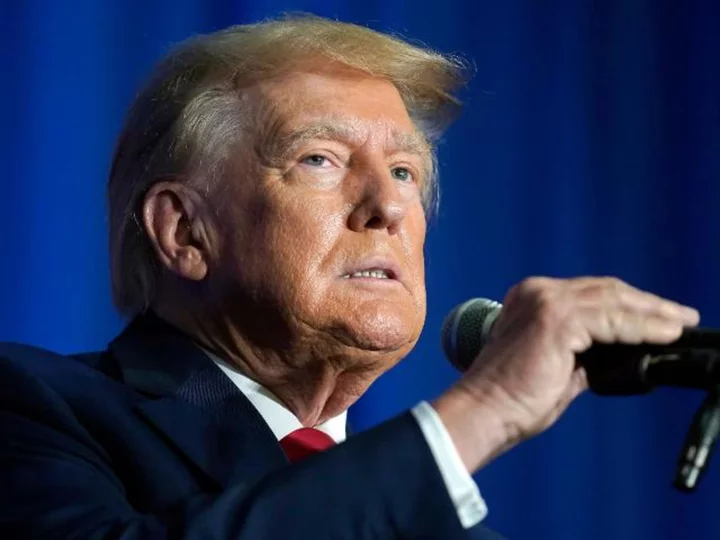
Trump's version of US election law rejected once and for all
The news Tuesday is that the US Supreme Court squarely rejected the fringe legal theory by which far-right activists and supporters of former President Donald Trump hoped to be able to ignore election outcomes.
1970-01-01 08:00
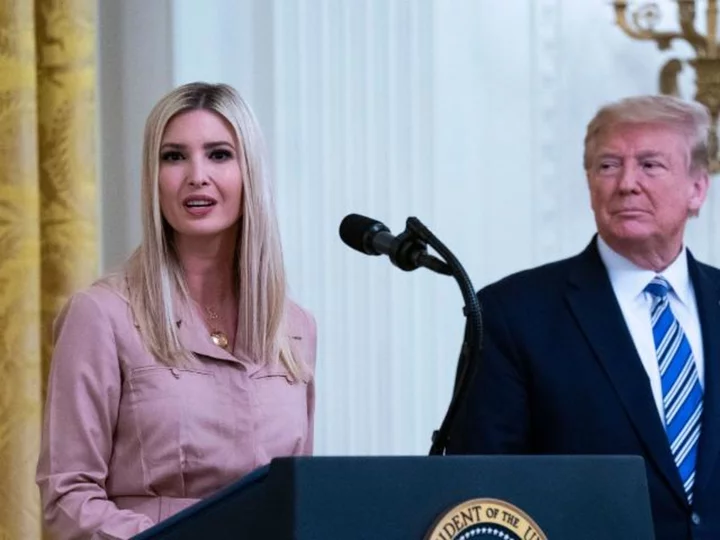
Appeals court dismisses Ivanka Trump as co-defendant in civil fraud case against Donald Trump
A New York appeals court has dismissed Ivanka Trump as a co-defendant in New York Attorney General Letitia James' civil fraud lawsuit against Donald Trump, his children and the Trump Organization, according to a court order filed Tuesday.
1970-01-01 08:00
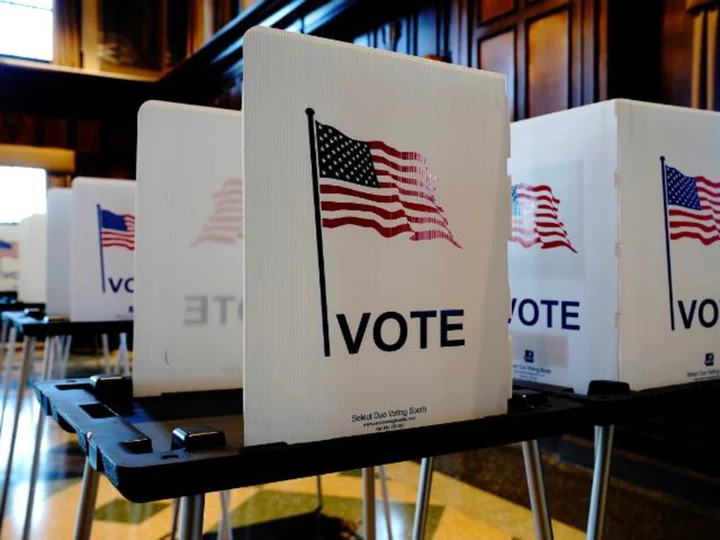
How the 'independent state legislature' theory, now rejected by SCOTUS, fueled chaos in 2020 and could influence 2024
The Supreme Court on Tuesday rejected a controversial legal theory that would've given partisan state lawmakers nearly unchecked power over US elections.
1970-01-01 08:00
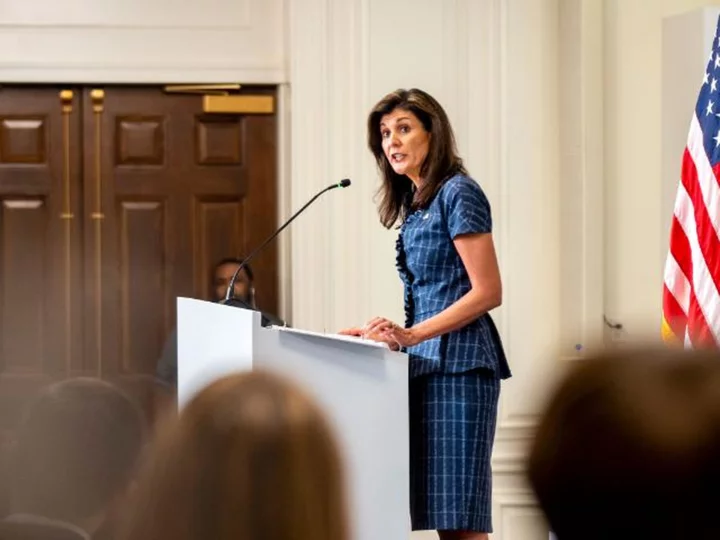
Nikki Haley takes aim at Trump's record on China in foreign policy speech
Former South Carolina Gov. Nikki Haley said that the Chinese military was "stronger" at the end of Donald Trump's presidency and accused the former president of being "singularly focused" on trade with China while he was in office.
1970-01-01 08:00
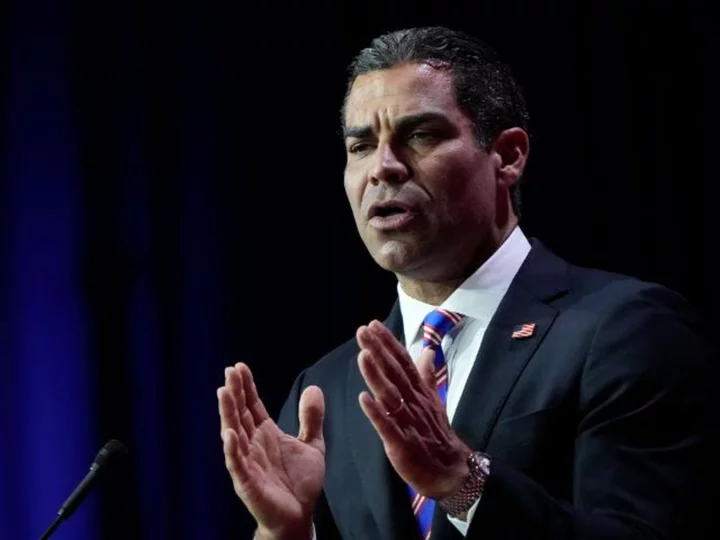
'What's a Uyghur?': Miami mayor and 2024 GOP hopeful Suarez fumbles question on China
Miami mayor and 2024 Republican presidential candidate Francis Suarez indicated in an interview on Tuesday that he was unfamiliar with the plight of Uyghur Muslims, a predominantly Muslim ethnic minority in China whose treatment has been the subject of worldwide condemnation for years.
1970-01-01 08:00

Cuban entrepreneurs get business training from the US, and hope that Biden lifts sanctions
Musicians Ana María Torres and María Carla Puga started making bracelets and necklaces at home in Cuba during the pandemic, and they now have a flourishing business. On an island that for decades prohibited private enterprise, they have had an unlikely adviser: the U.S. Embassy. Torres and Puga are part of a small group of entrepreneurs benefiting from a business training program the embassy is offering in Cuba, where many young entrepreneurs are less wary of the American government than those in previous generations. “We see it as a great opportunity,” says Torres, 25, who co-founded a store and workshop named Ama, which has a cafeteria and employs 12 people. Ama is one of almost 8,000 small- and medium-sized companies that were legally authorized to operate in Cuba over the past year and a half. The embassy training featured weekly online meetings covering everything from marketing tools and brand management to basic finances and the creation of web pages. The owners of Ama were among 30 entrepreneurs the embassy selected from 500 applicants. Torres and Puga recall the look of fear — and surprise — in an older driver’s face when, on their way to exhibit some of their products, they asked him to drop them at the U.S. Embassy. The driver suggested he drop them off one block away instead. “Our generation doesn't really have so much limitation with respect to daring to take part in these kinds of things with the U.S. embassy, because the context is different,” says Puga, 29. “We know there are some conflicts, but we also know there is a lot that is being tried, especially with Cuban entrepreneurs, and we’re really not afraid.” In 1968, the Cuban government shut down the few remaining private businesses that were left on the island after the 1959 revolution. In 2010, however, then-President Raúl Castro initiated a reform to boost the local economy and allowed independent workers to work in activities like rental houses, restaurants and transportation. These were further developed amid a 2014 rapprochement with the U.S. during the administration of President Barack Obama. Sanctions also were eased during that period. Policy towards the island hardened during the administration of President Donald Trump, and the economy has yet to recover from its 11% contraction in 2020. In tourism alone -- a mainstay for national income -- the island welcomed just 1.7 million visitors last year, less than half the amount of 2018. Cubans have been feeling the effects of yet another crisis, reflected by long lines to get fuel, shortages of basic goods, blackouts, inflation and record emigration. In September 2021, Cuba legalized the creation of small- and medium-sized businesses to help an economy in crisis, a decision that Cubans and observers of the nation's politics viewed as historic. Since then, 7,842 small- and medium-size companies were created, along with 65 non-agricultural cooperatives, generating some 212,000 jobs combined. However, decades living in a state-dominated economy led to the loss of business know-how, including financial administration, marketing strategies, publicity and customer relations. “I am very happy with the renewed willingness of the United States embassy to pave the way for us in terms of knowledge... that is something we were lacking,” says Adriana Heredia, a 30-year-old partner of Beyond Roots, a private enterprise that includes a clothing store, a beauty salon specializing in afro hair and various other cultural projects. Cuban entrepreneurs say they appreciate efforts like the U.S. embassy’s business training program, but they also express concern about the negative impact the U.S.-imposed sanctions have had on their economy. “There is a negative impact (of the sanctions) that is evident,” economist Ricardo Torres, a researcher at the Center for Latin American Studies at the American University in Washington, told the AP. “The United States is the dominant market, the dominant economy. So all the financial and commercial restrictions that... weigh on entities that are based in Cuba will negatively affect entrepreneurs.” Last month, representatives of 300 small- and medium-sized businesses sent a letter to President Joe Biden requesting, among other things, facilitation of financial transactions, the establishment of some sort of permit for U.S. businessmen to invest in Cuba and trade with private companies, They also requested removal of the island from U.S. list of countries that sponsor terrorism. Cuban entrepreneurs feel they are caught between two forces: U.S. sanctions and limitations within Cuba itself such as high taxes, a lack of financing and state control over imports and exports. The island also lacks permits for professionals to establish themselves as independent workers. “Unfortunately, Cuba’s private enterprises end up being subjected to a sort of crossfire,” Torres said. The Biden administration has promised several times to reverse some measures affecting the island and its fledgling entrepreneurs, but the Cuban government says Washington has yet to deliver. Benjamin Ziff, charge d’affairs at the U.S. embassy in Cuba, dismisses claims that the administration has implemented few changes. He pointed to the resumption of some flights and the sending of remittances, as well as a slew of educational and religious exchanges between both nations. The embassy's business training classes, while a small measure to boost the private sector, is one of them. “Cuba’s future lies in its private sector and those who say it is a necessary evil are completely wrong,” Ziff said in an interview. “It is an increasingly necessary good for the well-being of the people.” Read More Ukraine war’s heaviest fight rages in east - follow live Charity boss speaks out over ‘traumatic’ encounter with royal aide Sierra Leone's president wins second term without need for runoff, election commission announces Music Review: Kim Petras makes flirty Eurodance-pop in major-label debut Eni chief executive says plan for pipeline to move gas to Cyprus 'part of our discussion'
1970-01-01 08:00
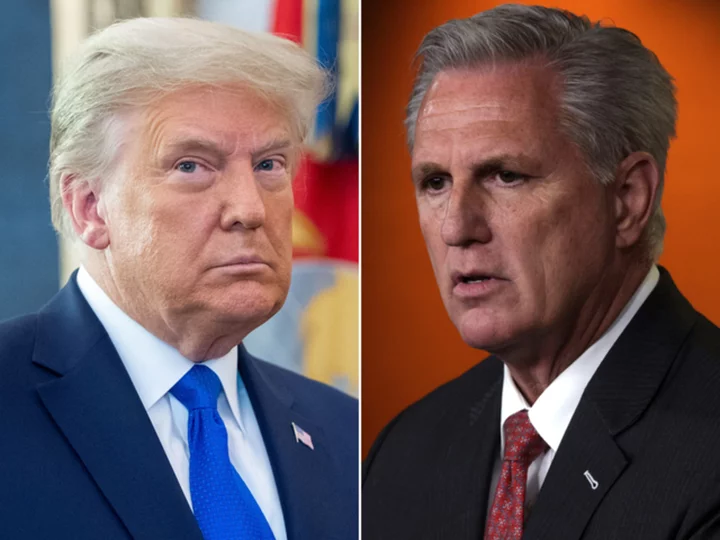
Trump allies outraged after McCarthy says 'I don't know' if Trump is strongest 2024 candidate
Advisers and allies to former President Donald Trump are expressing outrage after House Speaker Kevin McCarthy said that he thinks Trump can win in 2024, but does not know if he is the "strongest" candidate.
1970-01-01 08:00
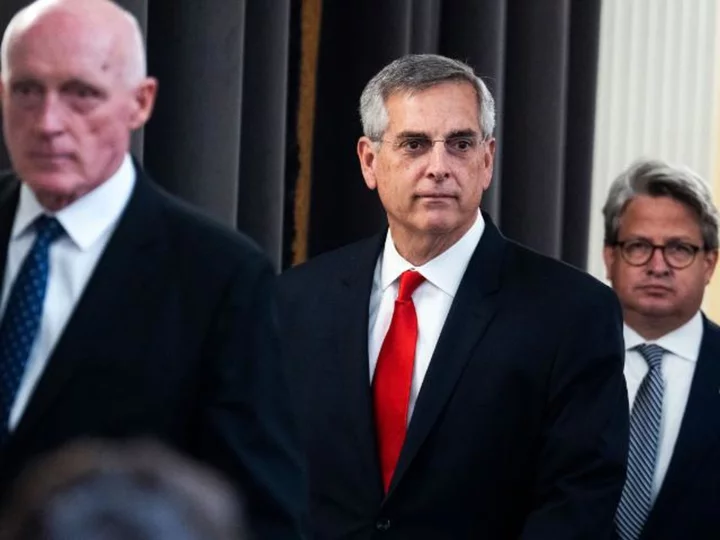
Investigators from special counsel's office to interview Georgia Secretary of State Raffensperger
Investigators from special counsel Jack Smith's office are set to interview Georgia Secretary of State Brad Raffensperger, as part of the federal probe into efforts to subvert the peaceful transition of power.
1970-01-01 08:00
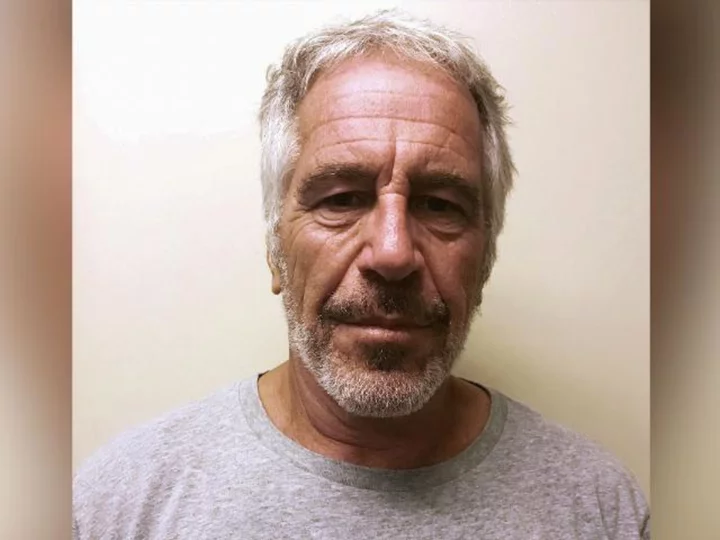
DOJ issues scathing rebuke of Bureau of Prisons detailing multiple failures that led to Jeffrey Epstein's suicide
The Justice Department's Office of the Inspector General on Tuesday issued a scathing rebuke of the Bureau of Prisons detailing the multiple failures that led to the death of high-profile financier Jeffrey Epstein following his arrest in 2019 but found no evidence to contradict the "absence of criminality" in his death.
1970-01-01 08:00
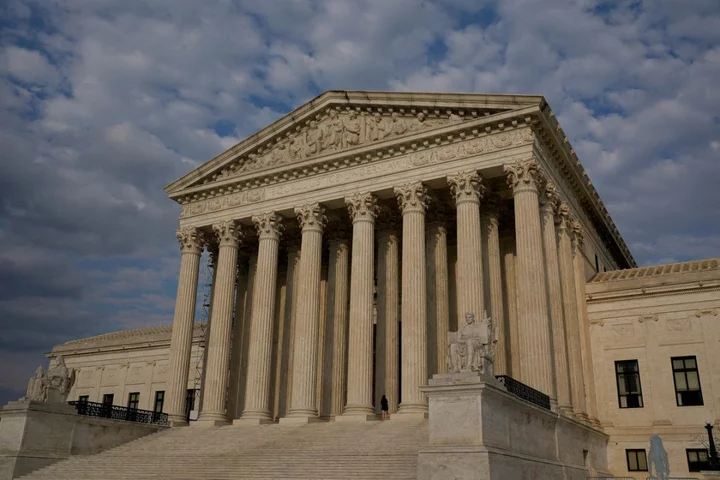
Supreme Court rejects fringe theory that could give GOP state lawmakers unchecked election authority
The US Supreme Court has shot down a fringe legal theory supported by Republican officials and Donald Trump’s allies that was invoked to toss out election results and radically reshape the nation’s elections. A 6-3 decision in Moore v Harper on 27 June determines that Republican-drawn congressional districts in North Carolina amounted to a partisan gerrymander that violated the state’s constitution, but the majority dismissed the so-called “independent state legislature” theory that fuelled the state’s arguments. Chief Justice John Roberts wrote the opinion, with support from Justices Sonia Sotomayor, Elena Kagan, Brett Kavanaugh and Amy Coney Barrett. Justices Clarence Thomas, Neil Gorsuch and Samuel Alito dissented. In oral arguments in the case last year, justices were warned that the high court’s endorsement of fringe legal theory could “sow chaos” in American democracy. The decision follows a lawsuit from a group of North Carolina voters and advocacy groups challenging the state’s Republican-drawn map of its congressional districts, which a state court rejected. Republican officials appealed to the Supreme Court arguing that the state legislature is granted exclusive power to regulate federal elections. A ruling from the justices that would uphold the GOP-drawn map would be seen as vindication for the fringe legal theory supported by many Republican officials and conspiracy theorists in their efforts to upend election outcomes and transform how the nation’s elections are run. The dubious theory – which animated Mr Trump’s spurious attempts to overturn election results in states he lost in the 2020 presidential election – could eliminate state constitutional bans against gerrymandering and other voting protections, potentially handing electoral control to Republican-dominated state legislatures that are primed to “rig” the next elections. After the 2020 presidential election, Mr Trump and his allies pressed state courts to overturn “unlawful election results” in several states he lost, based on bogus claims of fraud, and to let state lawmakers determine the outcome. All of those claims and court challenges were rejected. That fringe reading of the US Constitution went on to fuel GOP efforts to subvert election laws and change the rules of election administration across the US. In oral arguments in the case last year, US Solicitor General Elizabeth Prelogar warned that the court’s endorsement of the theory would “wreak havoc” on the electoral process and invalidate state constitutions across the country. “I’m not sure I’ve ever come across a theory in this court that would invalidate more state constitutional clauses as being federally unconstitutional,” added Neal Katyal, a former acting solicitor general under Barack Obama’s administration who argued the case on behalf of voting rights groups and Democratic voters in North Carolina. “The blast radius from their [independent state legislature] theory would sow elections chaos, forcing a confusing two-track system with one set of rules for federal elections and another for state ones,” he told justices. One reading of the theory argues that elected members of a state legislature have absolute authority to determine how federal elections – as in, elections for members of Congress and the president – are performed. State constitutional protections for the right to vote and efforts to combat partisan and racial gerrymandering could be overruled. A “nightmare” scenario could mean that a Republican-controlled state legislature that rejects the outcome of an election or objects to how it was administered – including the use of mail-in ballots or voting machines that have been subject to rampant, baseless conspiracy theories – could invoke the theory as pretext to refuse the results. Retired federal judge J Michael Luttig – who advised then-Vice President Mike Pence on 6 January, 2021 while under pressure from then-President Trump to reject the election’s outcome – has warned that the theory is a part of the “Republican blueprint to steal the 2024 election.” Dozens of briefs to the Supreme Court urged justices to reject the theory, from constitutional law experts, election officials and voting rights advocates to judges and prominent Republicans – including lawyer Ben Ginsberg, who worked on the landmark Bush v Gore case in 2000 that opened the door for the theory to take shape. Chief justices from state courts across the US wrote that the Constitution “does not oust state courts from their traditional role in reviewing election laws under state constitutions.” Without such barriers, courts will be “flooded with requests to second-guess state court decisions interpreting and applying state elections laws during every election cycle, infringing on state sovereignty and repeatedly involving the federal judiciary in election disputes,” they wrote in a filing to the court. A filing on behalf of the League of Women Voters said the theory could “throw election law and administration into disarray”. More than a dozen secretaries of state also warned that the “mistaken legal theory alien to our country’s history and this court’s precedent would have far-reaching and unpredictable consequences on our country’s elections.” The US Constitution’s election clause reads that the times, place and manner of federal elections “shall be prescribed in each State by the Legislature thereof; but the Congress may at any time by Law make or alter such Regulations.” The long-standing interpretation of that foundational clause is that election rules established by state legislatures must – like any other law – conform with state constitutions, which are under a court’s jurisdiction for review as to whether they are constitutional or not. “So if a state constitution subjects legislation to being blocked by a governor’s veto or citizen referendum, election laws can be blocked via the same means,” the Brennan Center explains. “And state courts must ensure that laws for federal elections, like all laws, comply with their state constitutions.” The Honest Elections Project, a Federalist Society-supported effort behind litigation involving state-level voting rules across the US, also supported the North Carolina case. The group invoked the fringe theory in a supporting brief filed with the Supreme Court, claiming that state legislatures are “vested with plenary authority that cannot be divested by state constitution to determine the times, places, and manner of presidential and congressional elections.” Moore v Harper “provides a timely opportunity to put these questions to rest,” according to the filing. Lawmakers in at least 38 states introduced nearly 200 bills that voting rights advocates and nonpartisan democratic watchdogs warned can be used to “subvert” election outcomes, building on a movement in the wake of 2020 elections to do in state legislatures what Mr Trump and his allies failed to do in court. The recently released analysis from the States United Democracy Center, Protect Democracy and Law Forward found that Republican state lawmakers advanced 185 bills that would make it easier for elected officials to overturn the will of their voters and make it harder for election workers to do their jobs. That total is on pace with similar efforts from previous legislative sessions. More than a dozen such bills introduced this year have been made law. Read More Supreme Court hears how the ‘blast radius’ of a radical legal theory could sow ‘election chaos’ How a fringe legal theory at the Supreme Court could blowtorch American elections Supreme Court rules Alabama discriminated against Black voters in major victory for voting rights Supreme Court rules against Navajo Nation’s access to drought-stricken Colorado River, despite US treaty Deb Haaland and Tribal leaders welcome Supreme Court decision upholding Indian Child Welfare Act
1970-01-01 08:00
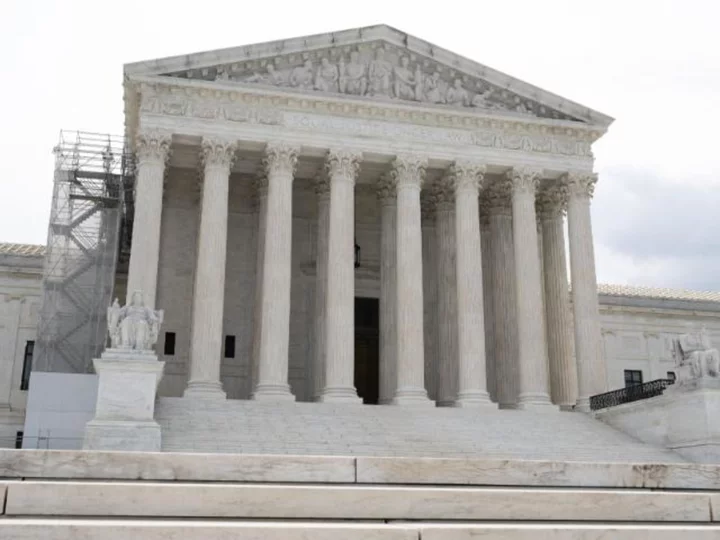
Supreme Court rejects controversial Trump-backed election law theory
The Supreme Court said Tuesday that the North Carolina Supreme Court did not violate the elections clause of the US Constitution when it invalidated the state's 2022 congressional map
1970-01-01 08:00
